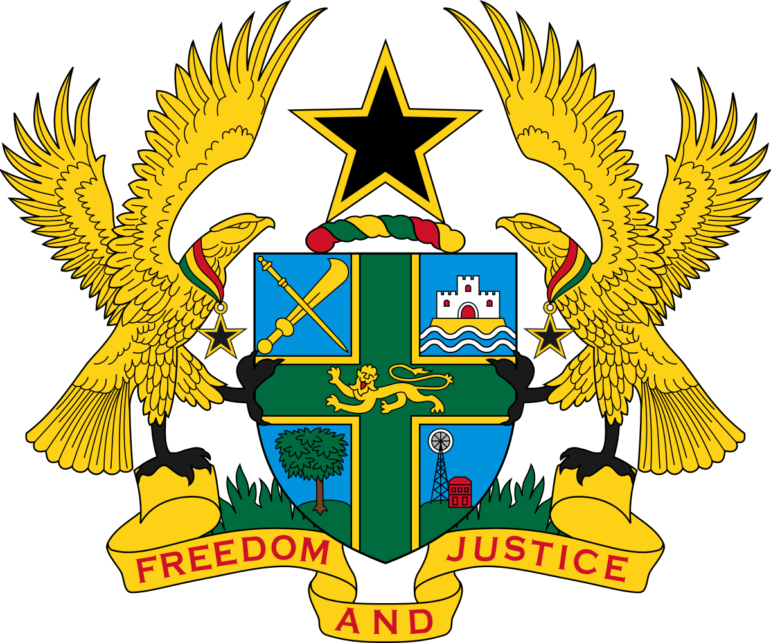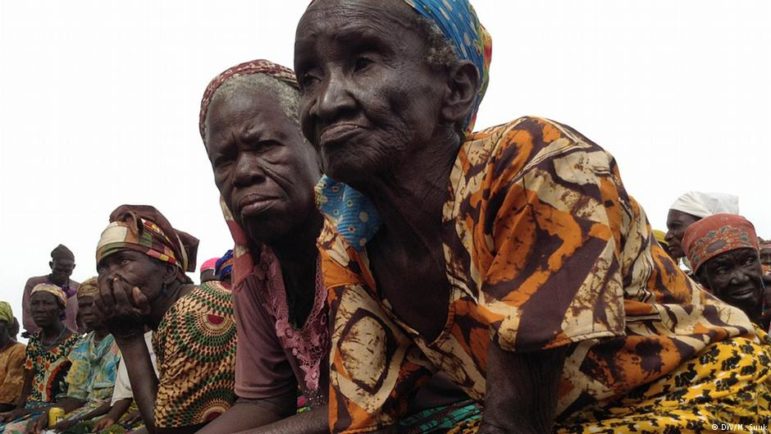Editorial Note: TWH uses lowercase in this article referring to “witches,” “witchcraft,” and “witch-hunt” to denote there appears no association with modern Pagan or Witchcraft practices. The victims of witch-hunts are almost always not Pagans, Witches, or practicing any spiritual practice typically recognized by the modern Neopagan community. Nevertheless, the accusations are serious and make us aware of the dangers of being labeled a witch and the persecution of witches in parts of the world.
Content warning: Graphic depictions of violence
ACCRA – Like many other news sources, The Wild Hunt has previously highlighted the notorious Ghanaian Witch camps. The 2020 murder of 90-year-old, Akua Denteh further exposed the atrocities committed against individuals (usually women) accused of witchcraft and drew international condemnation.
Denteh was targeted by a witch-hunter and accused of being a “witch” and was subsequently beaten to death in the village of Kafaba near Salaga in northern Ghana. A witch-hunter, Sherina Mohammed alias Hajia Filipina, was brought to the village by community members because of a lack of rainfall. Denteh was identified. A video of her violent death was posted online.
Mohammed was arrested and declared her practice was “a calling from God” and refused to cease her practice. Mohammed and her accomplices were charged with murder and trial by ordeal to which they pled not guilty.
The charges were later reduced to manslaughter. Mohammed and her accomplices later changed their plea to guilty and were sentenced to 24 years in prison earlier this month.
Two years ago, we reported that the Human Rights Council of the United Nations adopted the charter for the “Elimination of harmful practices related to accusations of witchcraft and ritual attacks.” The adoption occurred during the forty-seventh session of the Council in a draft resolution sponsored by Cameroon on “behalf of the States Members of the United Nations that are members of the Group of African States.” The report noted that “Older women are at particular risk due to widespread discriminatory attitudes and practices, UN Secretary-General Ban Ki-moon says in his message on World Elder Abuse Awareness Day. I call on Member States to enact and enforce stronger laws and strategies to address all aspects of this under-acknowledged social, public health and human rights issue.”
The Pan-African Parliament, the South Africa-based legislative body of the African Union, has also brought forwarded guidelines to prevent harm and abuse of people accused of being witches or practicing witchcraft. The guidelines were adopted earlier this year in March. The guidelines include urging governments to properly fund initiatives that eliminate witchcraft accusations, criminalize physical attacks and forced confessions, and update colonial-era laws pushing individuals for believing in or practicing witchcraft.

Ghana Coat of Arms
Despite the declarations and international outrage, little appears to have changed in the witch camps. The belief in witchcraft is deeply ingrained in some Ghanaian communities, and accusations of witchcraft are often based on superstitions and traditional beliefs. When a person falls sick or faces misfortune, particularly in rural areas, they may be accused of practicing witchcraft and blamed for causing harm.
Ghanaian witch camps have existed for over 100 years and many human rights advocates have called for their termination noting that the camps perpetuate discrimination and are routinely recognized for human rights abuses. Living conditions in these camps are often poor, consisting of mud huts with water available only miles away. The women condemned to these camps face further marginalization and social isolation not to mention the reality of false imprisonment and the subsequent possibility of violence against them.

“witches” at Gambaga “witch” camp in Northern Ghana [Photo Credit: SALTN (CC BY-SA 4.0)
Ten years ago, ActionAid Ghana Country Director Adwoa Kwateng-Kluvitse wrote “Women accused of being witches find their lives have been snatched away from them. The violence and brutality many face is shocking. These women are at the mercy of their accusers who destroy their lives and condemn them to a life of imprisonment.” By all accounts, little has changed.
Last year, Action Aid described the continuing experiences of women condemned to camps highlighting the story of Asana. They write her narrative, “When I first came here my whole body was in pain because he first hit me and then they tried to burn me with melted plastic. My ex-husband knew I was pregnant. One day, when I was five months pregnant, while I was in the fields with other women he came after me and he beat me with no mercy. While I was on the ground, he took out a knife. The other women were begging him to stop. After he beat me hard, he stopped. He did not kill me in the end. I was taken to a shrine. There, he melted plastic and poured it on my body. When I came here my whole body was in excruciating pain.”
Article 26 titled “CULTURAL RIGHTS AND PRACTICES” of the current Ghanian that was revised in 1996 states that “All customary practices which dehumanise or are injurious to the physical and mental well-being of a person are prohibited.”
On March 31, 2023, MP Hon Francis-Xavier Kojo Sosu introduced to the Ghanian an amendment to the Criminal Offences Act of 1960. The amendment seeks “to prohibit the practice by any person as a witch doctor or a witchfinder; to proscribe the declaration, accusation, naming or labeling of another person as a witch; and for related matters.” The bill received a second reading last week but has yet to become law.
The bill reading exposed to the committee that women represent about 92% of the population of 5 well-known witch camps. The committee also noted that the bill provides for the criminalization of witchcraft activities and questioned the practicality of such a provision. The bill’s sponsors said it was not their intent to criminalize superstitious beliefs, including “the existence of witches and wizards.” The bill does not eliminate witch camps.
The bill is still under consideration by the Parliament of Ghana and has yet to be signed into law.
The Wild Hunt is not responsible for links to external content.
To join a conversation on this post:
Visit our The Wild Hunt subreddit! Point your favorite browser to https://www.reddit.com/r/The_Wild_Hunt_News/, then click “JOIN”. Make sure to click the bell, too, to be notified of new articles posted to our subreddit.